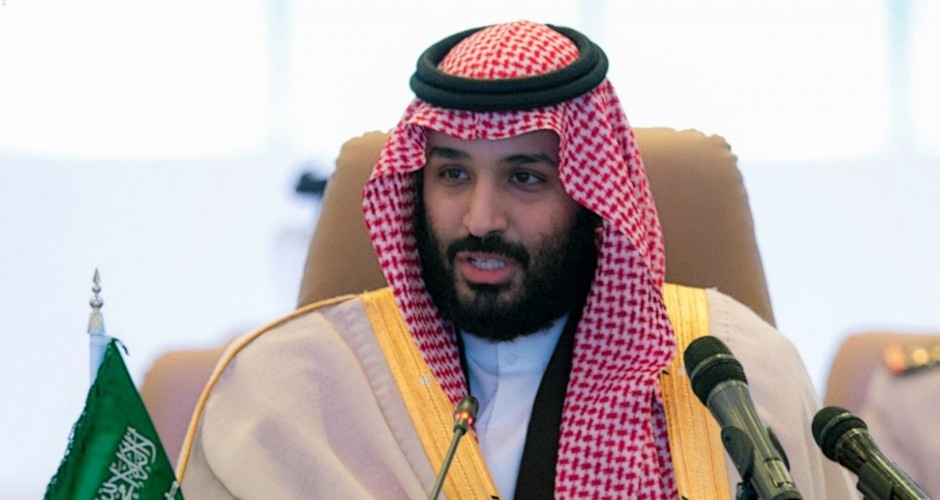(Photo of Crown Prince Mohammed bin Salman: AP Images)
— Published with Permission of TheNewAmerican.com —
Saudi Arabia’s Crown Prince Mohammed bin Salman (shown) said at the November 26 meeting of defense ministers in the Saudi capital of Riyadh that the Saudi-led Islamic Military Counter Terrorism Coalition (IMCTC) would “pursue terrorism until it is eradicated completely,” reported the Saudi-owned television news channel, Al Arabiya.
Al Arabiya reported a statement released by the IMCTC that quoted the crown prince as follows:
I express today our condolences to our brothers in Egypt, as a leadership and people, for what happened in the past days.
We will not allow them [terrorists] to distort our peaceful religion. Today we are sending a strong message that we are working together to fight terrorism. Today we affirm that we will pursue terrorism until it is eradicated completely.
The prince’s expression of condolences pertained to a November 24 terrorist attack inside a crowded mosque in the Sinai Peninsula that killed at least 305 people, making it the deadliest terrorist attack in Egypt’s modern history.
Arab News reported that Saudi Arabia announced the IMCTC alliance in December 2015. It consists of 41 countries and identifies as a “pan-Islamic unified front” against violent extremism.
The IMCTC, observed Arab News, employs an integrated approach to coordinate and unite its members on the four key domain areas of ideology, communications, counter-terrorism financing, and military strategy, “in order to fight all forms of terrorism and extremism and to effectively join other international security and peacekeeping efforts.”
During the meeting, IMCTC Acting Secretary General, Lt. Gen. Abdulelah Al-Saleh, outlined the coalition’s strategy, governance, activities and future plans.
Arab News, reported that the keynote speakers presented their perspectives on counter terrorism efforts in each of the IMCTC’s four key domains:
- “Dr. Mohammad Al-Issa, Secretary General of the Muslim World League, introduced the ideology domain, and the necessity of promoting a message that counters the narrative of violent extremist ideology and reaffirms Islamic principles of tolerance and compassion.”
- “Dr. Mohammad Al-Momani, Minister of State for Media Affairs of Jordan discussed the communications domain, and the importance of producing and disseminating factual, scholarly, and engaging content to undermine and counter the appeal of violent extremism.”
- “Dr. Ahmed Abdulkarim Alkholifey, Chairman and Governor of Saudi Arabian Monetary Authority, discussed Counter Terrorist Financing and the need to promote best practices and advance legal, regulatory, and operational frameworks in prevention, detection, and seizure operations.”
- “Pakistani General Raheel Sharif (Commander-in-Chief of the IMCTC) presented the military domain, which aimed to assist in the coordination of resourcing and planning of member country military CT operations; facilitate the secure sharing of military information; and encourage military CT capacity and capability building to ultimately deter aggression and violence.”
There are currently 41 nations that are members of IMCTC, all of which have Sunni-dominated governments. The alliance does not include any countries with Shia-dominated governments, such as Iran, Iraq, and Syria. Because of this makeup, Hakeem Azameli, a member of the Security and Defense Commission in the Iraqi parliament, called IMCTC “a sectarian coalition.”
A Reuters report noted that Qatar, which is a member of the coalition, was not present at the meeting. Qatar was not invited to the meeting after Saudi Arabia led a group of states seeking to isolate its small Arab neighbor on the Arabian Peninsula, charging that it supported terrorism. Qatar denies this assertion.
The report cited Abdulelah al-Saleh’s explanation that Qatar was excluded to help build a consensus among member countries.
We observed in a report on November 7 that Crown Prince bin Salman has assumed a more important role in Saudi Arabia since his father, King Salman bin Abdul Aziz, issued a royal decree on November 4 that named his son as the head of a newly established anti-corruption committee. The committee headed by the crown prince has the authority to investigate, arrest, issue travel bans, and freeze the assets of those it deems corrupt.
Muhammad bin Salman had been a key figure in Saudi Arabia for months before he was placed at the head of the anti-corruption committee and has been described as the power behind the throne of King Salman.


